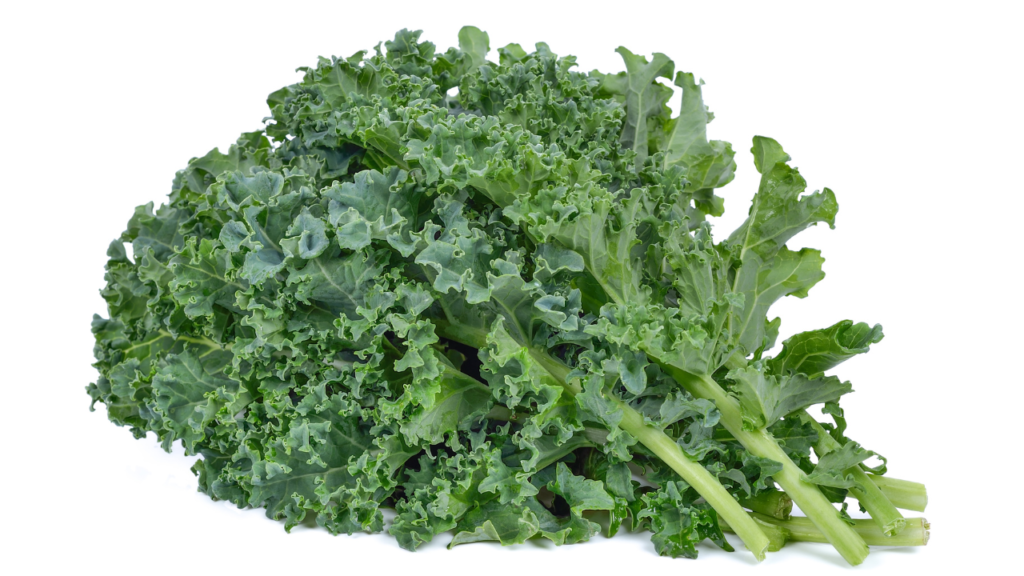Green kale

Green kale is considered one of the healthiest vegetables due to its rich nutritional profile. It’s a member of the cruciferous vegetable family, which also includes broccoli, cauliflower, and Brussels sprouts. Here are some of the health benefits and nutrients that green kale provides:
Nutrient Dense: Kale is packed with essential vitamins and minerals, including vitamins A, C, and K, as well as calcium, potassium, and iron.
Antioxidants: Kale is rich in antioxidants, including beta-carotene and flavonoids, which help combat oxidative stress and inflammation in the body.
Vitamin K: A single cup of cooked kale provides more than 100% of the recommended daily intake of vitamin K, which is important for bone health and blood clotting.
Vitamin C: Kale is an excellent source of vitamin C, an antioxidant that supports the immune system and helps the body absorb iron from plant-based foods.
Fiber: Kale contains both soluble and insoluble fiber, promoting digestive health and contributing to a feeling of fullness.
Low in Calories: Kale is low in calories but high in volume, making it a great option for those looking to manage their weight.
Potential Anti-Cancer Properties: Some compounds found in kale, such as sulforaphane, have been studied for their potential anti-cancer effects.
Heart Health: The fiber, antioxidants, and potassium in kale contribute to heart health by helping to lower blood pressure and cholesterol levels.
Eye Health: The high levels of lutein and zeaxanthin in kale are beneficial for maintaining good eye health and reducing the risk of age-related macular degeneration.
Detoxification Support: Kale contains compounds that can help support the body’s natural detoxification processes.
To enjoy the health benefits of kale, it’s best to include it as part of a balanced diet. You can consume it raw in salads, smoothies, or as a snack (kale chips), or you can cook it by steaming, sautéing, or adding it to soups and stews. Keep in mind that while kale is incredibly nutritious, a varied diet that includes a range of vegetables is important for overall health.






